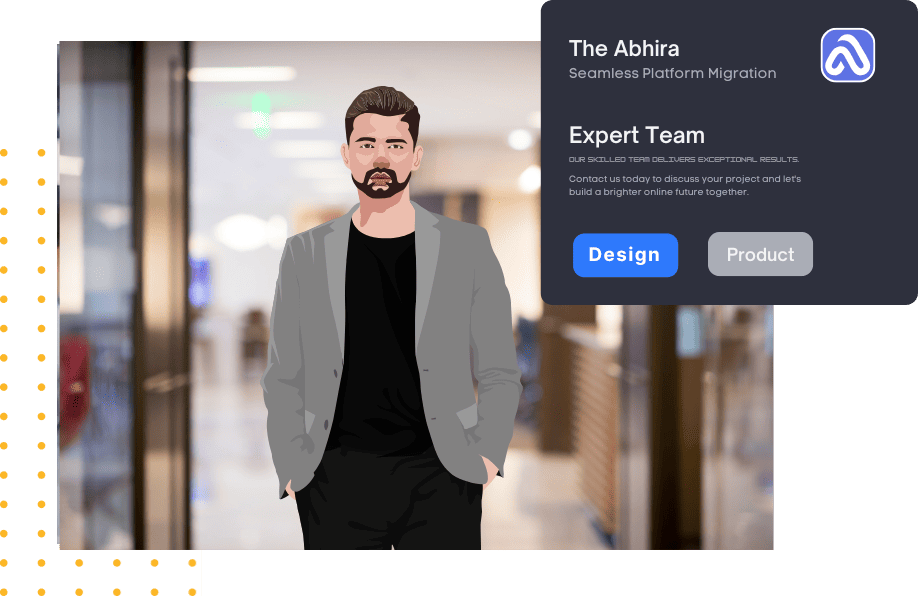The Application of Artificial Intelligence (AI) in Search Engine Optimization (SEO)

Artificial Intelligence (AI) is transforming SEO in dynamic ways, making search engines smarter and helping marketers refine strategies for better rankings and visibility. Here’s an in-depth look at the major applications of AI in SEO:
1. Content Optimization and Creation
AI-powered tools help marketers identify high-performing keywords, optimize content for user intent, and create high-quality, SEO-friendly content.
- Content Analysis: AI tools like MarketMuse and Clearscope analyze top-ranking content to determine topics, subtopics, and keyword densities needed to outperform competitors.
- Content Generation: Natural language processing (NLP) models like ChatGPT and Jasper can help generate initial content drafts, blog ideas, or even rewrite content to better align with SEO requirements.
2. Enhanced Keyword Research
AI algorithms improve keyword research by analyzing user intent, behavior, and search trends to identify new, profitable keywords.
- Intent-based Keywords: AI-powered platforms like Ahrefs and SEMrush categorize keywords based on user intent (informational, navigational, transactional) to help tailor content accordingly.
- Predictive Keyword Insights: Machine learning analyzes search data to predict trending keywords, helping marketers stay ahead in competitive niches.
3. Personalization and User Experience (UX)
AI can personalize the user experience by delivering the most relevant content based on a user’s preferences, location, and search history.
- Content Personalization: AI enables dynamic content that changes based on user behavior, like showing personalized recommendations or adjusting content sections in real-time.
- Improved Site Navigation: Machine learning algorithms analyze user behavior to optimize navigation paths, improve click-through rates (CTR), and increase session durations.
4. Voice Search Optimization
AI-driven voice recognition technology has made voice search increasingly popular, especially with the rise of smart speakers and digital assistants like Alexa, Siri, and Google Assistant.
- Conversational Keywords: Optimizing for natural language queries and long-tail keywords becomes essential since users typically phrase voice searches in a conversational tone.
- Featured Snippets: AI helps websites rank in "position zero" by identifying questions and answers commonly used in voice search and structuring content to be snippet-friendly.
5. AI in Rank Tracking and Algorithm Analysis
AI tools can track rankings across multiple locations, analyze fluctuations, and predict algorithmic changes.
- Automated Rank Tracking: Tools like SERanking and Advanced Web Ranking use AI to track fluctuations, competitor movements, and rank across locations.
- Algorithm Analysis: Machine learning algorithms analyze the impact of core updates on search results and help determine strategies to regain lost rankings.
6. Image and Video Recognition for Visual SEO
AI-powered visual recognition technologies can identify and optimize images and videos for search engines.
- Automated Alt Text Creation: AI tools analyze and automatically generate relevant alt texts, ensuring images are SEO-friendly and accessible.
- Video Transcriptions: Tools like Google Cloud Video Intelligence extract keywords and topics from videos, making video content searchable and improving SEO value.
7. Advanced Analytics and Insights
AI is essential in processing vast data from SEO campaigns and providing actionable insights to improve strategies.
- SEO Analytics Platforms: AI-driven tools like Google Analytics 4 leverage machine learning to predict user behavior, segment audiences, and enhance targeted campaigns.
- Competitive Analysis: AI tools track competitor content, keywords, and backlinks, providing a competitive edge by showing what is working in real-time.
8. Automated Technical SEO Audits
AI tools perform automated technical audits, identifying and fixing SEO issues in real-time to maintain peak performance.
- Technical SEO Crawlers: Tools like DeepCrawl and Screaming Frog use AI to identify broken links, duplicate content, or speed issues that can harm SEO.
- Schema Markup: AI can analyze site content and generate schema markup suggestions, making the site more accessible to search engines and improving SERP visibility.
9. Backlink Analysis and Link Building
AI-driven tools analyze backlink profiles, predict the value of links, and find link-building opportunities.
- Backlink Quality Assessment: Machine learning algorithms analyze backlink sources to assess quality, relevance, and SEO value, filtering out harmful links.
- Link-Building Opportunities: AI-based link-building platforms like Pitchbox and Hunter streamline outreach, prospecting, and email automation to improve link acquisition rates.
10. AI-Powered Chatbots and User Engagement
Chatbots driven by AI can improve on-page engagement, lower bounce rates, and assist in guiding users to relevant content.
- Real-time Assistance: AI chatbots can answer user queries, offer product suggestions, and guide users to valuable pages, improving engagement and dwell time.
- Lead Capture and Retargeting: Advanced chatbots integrate with email marketing and retargeting strategies to capture and nurture leads, improving user interaction.

- Web Development
- Art
- Causes
- Crafts
- Dance
- Drinks
- Film
- Fitness
- Food
- Games
- Gardening
- Health
- Home
- Literature
- Music
- Networking
- Other
- Party
- Religion
- Shopping
- Sports
- Theater
- Wellness




